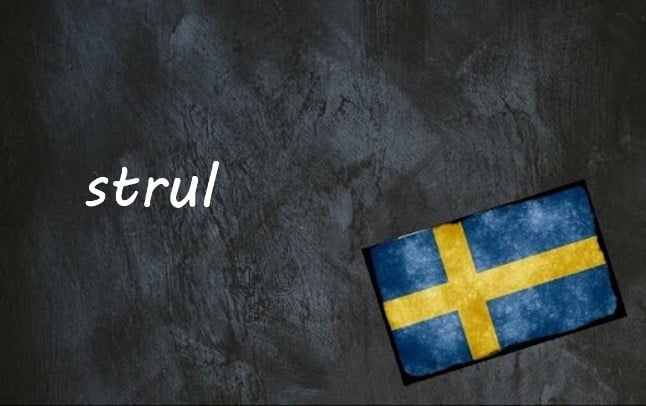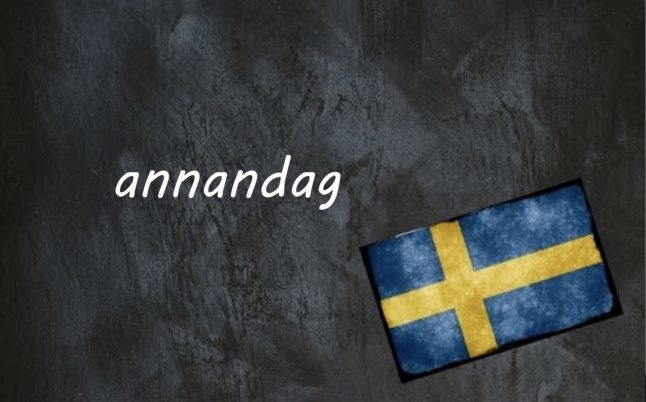The basic meaning of the noun strul is “trouble” or “tangle”, and can be used in a number of different ways depending on the context.
One of these is as a suffix, used to describe some sort of issue you’re having.
You can simply attach it to the end of a word, depending on the issue. If you’re in the office and your laptop shuts down, or the internet doesn’t work, you’re experiencing teknikstrul. And if you’re planning on taking the bus at 1pm sharp on your way to work, but the bus is running late, you might be suffering from some buss-strul, or tågstrul, if you’re taking the train.
But if you’re talking about ett strul or the verb att strula, you’re talking about something completely different.
Att strula med någon means to temporarily hook up with someone in a casual way, for example if you make out with a random person on the dance floor, or have a one-night stand. The verb strula is mostly used by so-called fjortisar, a negative word for “immature teenagers”.
But watch out for the tricky part. When talking about teknikstrul, while your laptop shuts down, you could say min dator strular. That doesn’t mean that your laptop is having a casual fling with another laptop, it means that you laptop is not working correctly.
If you watch your friend making out with a random person at the dancefloor however, you could say min kompis strular med någon, which in this case, does refer to a casual hook-up.
Examples
Jag strulade med någon på festen igårkväll
I casually hooked up with someone at the party last night
Min dator strulade hela dagen igår på jobbet
My computer didn’t work correctly the entire day at work yesterday
Det var lite tågstrul på vägen hem idag
There were some problems with the trains on the way home today
Villa, Volvo, Vovve: The Local’s Word Guide to Swedish Life, written by The Local’s journalists, is available to order. Head to lysforlag.com/vvv to read more about it – or join The Local as a member and get your copy for free.
It is also possible to buy your copy from Amazon US, Amazon UK, Bokus or Adlibris.



 Please whitelist us to continue reading.
Please whitelist us to continue reading.
Member comments